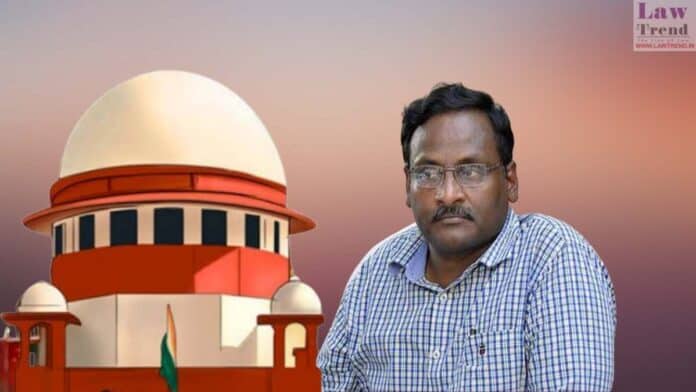The Supreme Court on Wednesday set aside a Bombay High Court order acquitting former Delhi University Professor G N Saibaba in a Maoist links case and remanded it back to the high court for fresh consideration on merits within four months.
A bench of top court Justices M R Shah and CT Ravikumar directed the chief justice of the Bombay High Court to place Saibaba’s appeal and that of other accused not before the same bench which had discharged them and the case be heard by another bench.
It said that question of law, including sanction under the Unlawful Activities (Prevention) Act (UAPA), is to remain open for adjudication by the high court. The top court had on October 15 suspended the Bombay High Court order acquitting Saibaba and others in the case.
Advocate Abhikalp Pratap Singh appeared for the Maharashtra government and senior advocate R Basant represented Saibaba in the case in the apex court.
More than eight years after his arrest in 2014, the Bombay High Court on October 14 last year acquitted Saibaba and ordered his release from jail, noting that the sanction order issued to prosecute the accused in the case under the stringent provisions of the UAPA was “bad in law and invalid”.
The Nagpur bench of the high court allowed the appeal filed by Saibaba challenging a 2017 order of the trial court convicting and sentencing him to life imprisonment for offences under provisions of UAPA and the Indian Penal Code.
Apart from Saibaba, the Bombay high court had acquitted Mahesh Kariman Tirki, Pandu Pora Narote (both farmers), Hem Keshavdatta Mishra (student) and Prashant Sanglikar (journalist), who were sentenced to life imprisonment, and Vijay Tirki (labourer), who was sentenced to 10 years in jail. Narote died during the pendency of the appeal.




